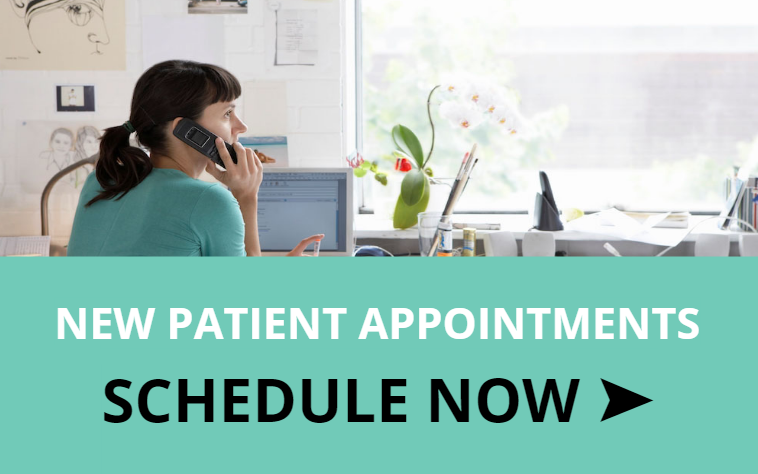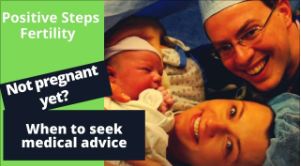How do you prepare yourself for pregnancy?
Whether you’ve experienced infertility or haven’t tried yet, there are 10 key steps to take when you’re ready to prepare yourself for pregnancy. Here’s what I tell my patients all the time—this is what really matters:
1. Start with a Specialist
The easiest and most helpful thing you can do is connect with a specialist—whether that’s someone like me, a fertility doctor, or a general OB/GYN. You need someone who deeply understands the reproductive system and can guide you. For example, reviewing your medications is crucial. Some might cause birth defects. I’ve seen patients take herbal supplements like chasteberry, thinking they’ll help with fertility, when in fact, they can block ovulation. Ironically, chaste means abstaining, and there are estrogens in it that can interfere with your cycle. A specialist can help you avoid wasting time and effort—and get the right testing done if needed.
2. Address Your Birth Control
Whatever contraceptive you’ve been using, it’s time to plan your transition off. If you’re on the pill, you can typically get pregnant quickly after stopping. In fact, you may have a slightly higher chance of fraternal twins the first month off—about 2% instead of the usual 1%.
But, with Depo-Provera, it can take up to a year to return to normal fertility. IUDs or Implanon require removal and some adjustment time. Don’t assume that stopping means immediate fertility—it varies, and planning ahead helps.
3. Start Prenatal Vitamins Early
I’m very passionate about prenatal vitamins. They help prevent miscarriages and birth defects. I recommend starting them ideally three months before you try to conceive to build up reserves. And no, they don’t have to be giant horse pills—gummies and chewables are fine.
That said, the full prenatal vitamins have more iron, which becomes important as your blood volume increases during pregnancy. If you have heavy periods, it’s even more important to transition early so you can rebuild your iron stores.
4. Don’t Overthink Cycle Tracking
Everyone says track your cycle—but I think it’s mostly unnecessary. If you have sex twice a week, sperm—which can live up to 72 hours—will almost always be there when the egg drops.
Unless you’ve had cervical procedures or irregular cycles, detailed tracking usually isn’t needed. If your cycle is every 40 days instead of 30, having sex every third day still covers your bases. And if you haven’t had a period in a year? That’s when we need to intervene, maybe with ovulation induction or other support. But most people are fine without obsessing over timing.
5. Make Smart Lifestyle Choices
Forget the myths—salty fries, Robitussin, and other internet tricks don’t make much difference. What does matter? Stop smoking. Cut back or eliminate alcohol—it can damage DNA and reduce sperm and egg quality.
If you work with chemicals, radiation, or high heat—hairdressers, nail techs, farmers, radiology techs—take precautions. I’m not saying quit your job, but be mindful and try to minimize exposure.
6. Aim for a Healthy Weight
This one’s important, but it’s not about blame. I see people eating poorly and getting pregnant all the time—but that doesn’t mean weight doesn’t matter. Weight can affect fertility success, pregnancy complications, and birth outcomes. Losing weight can reduce the risk of miscarriage, preeclampsia, gestational diabetes, and emergency C-sections. But losing too much can also stop ovulation. So it’s about balance—not extremes.
7. Manage Chronic Health Conditions
If you have high blood pressure, diabetes, thyroid issues, or autoimmune conditions like lupus, get them under control before trying to conceive.
Poorly managed hypertension can lead to complications like placental abruption or preeclampsia. Uncontrolled diabetes increases the risk of miscarriage and birth defects. A specialist can help make sure you’re on pregnancy-safe medications and your condition is well-managed.
8. Talk with Your Partner
You’d be amazed how many couples start trying for a baby without being on the same page. This is one of the most important decisions of your life—talk about how you’ll handle support, parenting roles, morning sickness, possible bedrest, and time off work. Having those conversations now will reduce stress later.
9. Understand Your Insurance and Finances
Pregnancy and delivery can be expensive. Some insurance plans still treat pregnancy as a pre-existing condition—which could mean no coverage. Make sure your plan covers prenatal care and delivery.
Also, find an OB you trust before you get pregnant if possible. Build a cushion of savings in case you need extra time off or face unexpected costs. Planning ahead makes a huge difference.
10. Consider Fertility Testing
If you want to be proactive—or if you’ve had past issues—it’s perfectly reasonable to do fertility testing. We offer the Parryscope®, a quick, 20-minute test that evaluates your core fertility factors, including:
- Ovarian Reserve: How many quality eggs are ready in your ovaries?
- Fallopian Tube Patency: Are your tubes open for eggs and sperm to meet?
- Uterine Readiness: Is your uterus set to nurture an embryo?
So many fertility issues come down to just those three things. I’ve had patients with a good ovary on one side and an open tube on the other—but they didn’t line up. That kind of information helps guide expectations and avoid wasted time. Fertility doesn’t have to be a guessing game. The more we know, the more we can do.
Final Thoughts
Pregnancy can be one of the most rewarding—and challenging—journeys you’ll ever take. Preparation isn’t just about vitamins and doctor visits. It’s about understanding your body, protecting your well-being, and surrounding yourself with support.
If you’re heading down that path, I hope it’s a successful and joyful one—and I’m here to help if you need guidance along the way.




